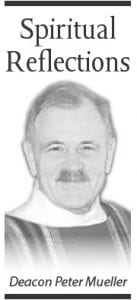All people to be imitated. What may they teach us? How about the virtue of religion? How about doing good? How about eliminating violence? How about being responsible for our own actions?
Many of us don’t have the virtue of religion. It is hard to wake up on Sunday mornings, we do get bored in church, we have other things to do besides pray. Good or virtuous religion practice does not give God worship in order to avoid hell, instead virtuous religious practice recognizes God as giver of all good things, and He should be given gratitude and honor as a result. This is not burdensome for us to do.
Thomas Aquinas (a Dominican Friar 1225 – 1274) points out “we find it difficult to do virtuous things but the more we grow in virtue the easier it is for us to act virtuously,” it is the same thing with religion. “Virtues lead us to more and more good acts.”
Aristotle (a Greek philosopher 384-322 BC) writes “Good conduct arises from habits that in turn can only be acquired by repeated action and correction.” This involves thinking about what we do. “The enemy of moral conduct is the failure to behave well.”
Benjamin Franklin (a Founding Father, 1706- 1790) started a personal project as a young man to arrive at moral perfection. He came up with a list of 12 virtues and how they should be applied in his life. His list is: . Temperance – eat not to dullness, drink not to elevation. . Silence – speak not but what may benefit others. . Order – Let all things have their places. . Resolution – Resolve to perform what you ought. . Frugality – Make no expense but to do good to others or yourself. . Industry – Lose no time, be always employed in something useful. . Sincerity – Use no hurtful deceit. . Justice – wrong none by doing injuries. . Moderation – Avoid extremes. . Cleanliness – Tolerate no uncleanliness in body, clothes or habitation. . Tranquility – Be not disturbed by trifles. . Chastity – Rarely use venery (the pursuit of sexual pleasure).
He practiced one virtue per week. After 13 weeks he moved back to the top of the list. He developed this list to become morally perfect.
Over the past 50 years sweeping changes in our lifestyle have resulted in a lack of virtue and an increase in violence, I think those changes are: a rejection of traditional religion, a subversion of sound morality, a breakdown of the family and a reduction in solid communities. These result in a lack of virtue in our lives.
To achieve personal happiness we should develop virtue in our life. A virtue is something good or an excellence in our character, there is no such thing as a bad virtue. Vice is the opposite of virtue. There cannot be a good vice. Striving to be virtuous leads to happiness. Virtues are Moral and Theological. Moral virtues are Justice, Fortitude and Temperance. Theological virtues are Faith, Hope and Charity.
A short definition of each follows: Justice – Give to God and others what is their due. Fortitude – regulates our fears and ensures stability and constancy in our life. Temperance – moderates our desires. Faith – we believe in our intellect everything which God has revealed. Hope – we desire our happiness and the kingdom of heaven. Charity – we love God alone above all things and everyone else out of the love of God.
We are not born with virtues, it is up to us to learn them. Someone who doesn’t choose to acquire virtues is at least foolish and may be bad. We must show virtue in our life; that is acting with the right motive and attitude. A life of virtue strengthens us, it helps us fit in our community, it pleases God, it keeps us safe, it makes us and others happy, it help us to achieve our goals, people like us, and we them. Perhaps if we all practice virtue there will be less violence in the United States and the world. As parents we must develop ourselves and our children in a life of virtue, then we may have a happy, safe, holy life.
Each month a member of the Cook County Ministerium will offer Spiritual Reflections. This month our contributor is Deacon Peter Mueller of St. John’s Catholic Church in Grand Marais.



Loading Comments